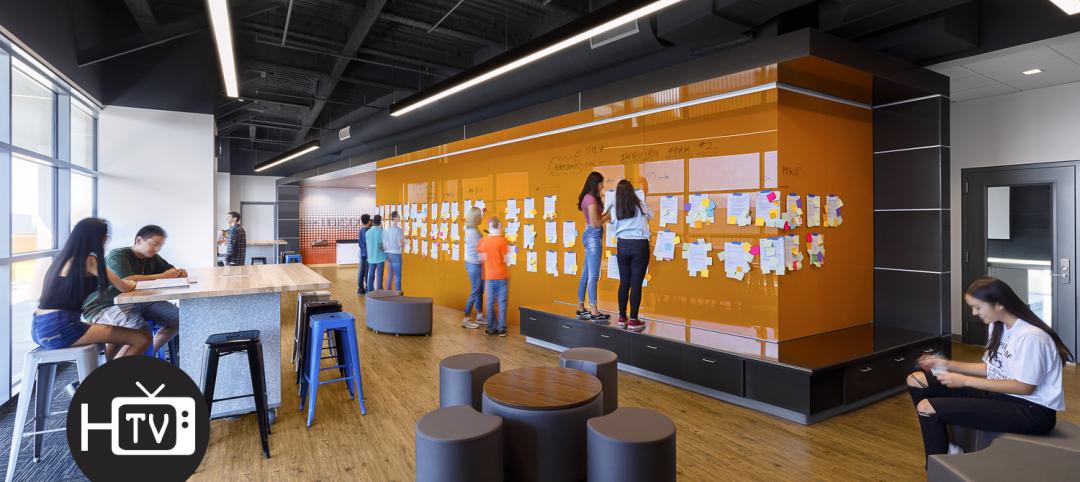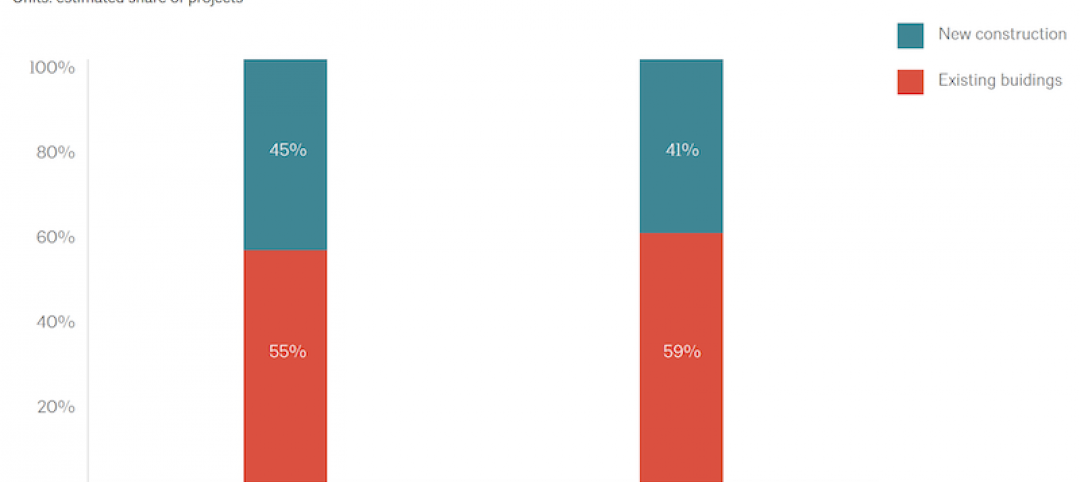Women account for more than half of the U.S. population. But even with significant gains over the past 25 years, their numbers and positions among the ranks of practicing architects appear to have stalled.
The reasons could be a combination of too few role models, mentors, and advancement opportunities, based to a statistical analysis of women’s progress in this field by the Association of Collegiate Schools of Architecture (ACSA).
Looking at recent data from a wide range of sources—including the Bureau of Labor Statistics, AIA, National Architectural Accrediting Board, the National Center for Education Statistics, and the National Council for Architectural Registration Boards—the association found that while the number of female architectural students and graduates has stabilized at around 40%, the number of women working in architect roles has also stopped increasing, and hasn’t gone much higher than 25%.
Indeed, AIA’s Foresight Report indicated that, in 2011 (the latest year for which data were available), only 30% of its women members were associates in their firms, and only 17% were principals or partners. In fact, just 15% of AIA’s licensed members were women that year. And a mere 13% of Intern Development Program supervisors, who review the work of intern architects submitting IDP hours, were female.
“Even with a sizable margin of error it is clear that there are far fewer women in practice than in school,” said Lian Chikako Chang, ACSA’s Director of Research and Information, who authored this report.
The reasons why this “leaky pipeline” persists, however, are less clear.
While Chang doesn’t state this outright, the perception of women architects as second-class citizens might have its roots in academia, where only around one quarter of lecturers, directors, heads and chairs of U.S. architectural schools are female, and only 19% of deans.
It could also be argued that women are leaving the profession at higher rates than men because they are discouraged by the lack of industry recognition their work receives. Only 5% of all TOPAZ Medallion recipients have been women, and about the same percentage of Pritzker Prize winners. Since 1907, only one of the 69 AIA Gold Medals has been awarded to a woman, and that was posthumously in 2014.
“With the share of awards going to women increasing by about 5% each decade, if we continue at this pace we’ll be waiting until 2080 to see a 50-50 split,” Chang notes sardonically.
While the author offered no specific prescriptions, Chang asserted that a more systematic approach to professional development will be required in order to encourage and support women in progressing and achieving as architects at rates more equal to those of men.
“The data reviewed here suggest that we should focus particularly on two areas: first, what happens before applying to and enrolling in architecture school; and second, what happens at higher levels in the profession, academia, and related practices,” she said.
Related Stories
Wood | Jul 16, 2021
The future of mass timber construction, with Swinerton's Timberlab
In this exclusive for HorizonTV, BD+C's John Caulfield sat down with three Timberlab leaders to discuss the launch of the firm and what factors will lead to greater mass timber demand.
Multifamily Housing | Jul 15, 2021
Economic rebound leads to record increase in multifamily asking rents
Across the country, multifamily rents have skyrocketed. Year-over-year rents are up by double digits in nine of the top 30 markets, while national YoY rent growth is up 6.3%. Emerging from the pandemic, a perfect storm of migration, enhanced government stimulus and a hot housing market, among other factors, has enabled this extremely strong growth.
AEC Business Innovation | Jul 11, 2021
Staffing, office changes at SCB, SmithGroup, RKTB, Ryan Cos., Jacobsen, Boldt, and Adolfson & Peterson
AEC firms take strategic action as construction picks up steam with Covid openings.
K-12 Schools | Jul 9, 2021
LPA Architects' STEM high school post-occupancy evaluation
LPA Architects conducted a post-occupancy evaluation, or POE, of the eSTEM Academy, a new high school specializing in health/medical and design/engineering Career Technical Education, in Eastvale, Calif. The POE helped LPA, the Riverside County Office of Education, and the Corona-Norco Unified School District gain a better understanding of which design innovations—such as movable walls, flex furniture, collaborative spaces, indoor-outdoor activity areas, and a student union—enhanced the education program, and how well students and teachers used these innovations.
Multifamily Housing | Jul 7, 2021
Make sure to get your multifamily amenities mix right
One of the hardest decisions multifamily developers and their design teams have to make is what mix of amenities they’re going to put into each project. A lot of squiggly factors go into that decision: the type of community, the geographic market, local recreation preferences, climate/weather conditions, physical parameters, and of course the budget. The permutations are mind-boggling.
Industrial Facilities | Jul 2, 2021
A new approach to cold storage buildings
Cameron Trefry and Kate Lyle of Ware Malcomb talk about their firm's cold storage building prototype that is serving a market that is rapidly expanding across the supply chain.
Multifamily Housing | Jun 30, 2021
A post-pandemic ‘new normal’ for apartment buildings
Grimm + Parker’s vision foresees buildings with rentable offices and refrigerated package storage.
Architects | Jun 30, 2021
Perkins Eastman joins forces with MEIS
MEIS’ work on stadiums and entertainment centers spans the globe with state-of-the-art designs in the U.S., Europe, Asia, and the Middle East.
Architects | Jun 25, 2021
AIA announces Small Project Award recipients
Now in its 18th year, the AIA Small Project Awards program recognizes small-project practitioners for the high quality of their work.
Architects | Jun 24, 2021
Post-pandemic, architects need to advocate harder for project sustainability
An AIA-Oldcastle report looks closer at the coronavirus’s impact on design and construction

















